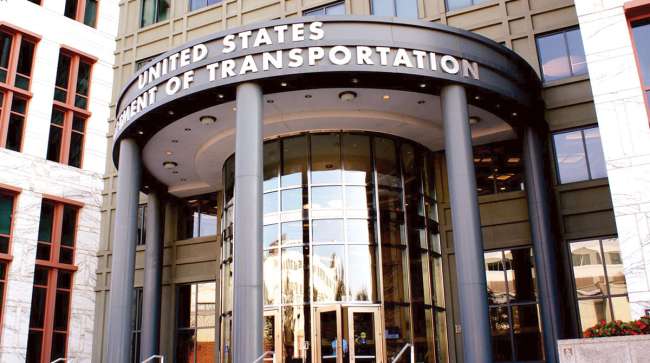Senior Reporter
NHTSA Denies Petition to Remove Underride Guard Labeling Requirement

[Stay on top of transportation news: Get TTNews in your inbox.]
The National Highway Traffic Safety Administration has denied a petition filed by the Commercial Vehicle Safety Alliance asking regulators to drop a requirement for trucks and trailers to display a legible certification label on their rear impact guards.
“The agency is denying the petition because the requested amendment would compromise the enforcement of the rear impact guard standard,” NHTSA said in Federal Register post Jan. 30. “Limiting the ability to identify noncompliant products would reduce the effectiveness of the standard and increase the safety risk to the motoring public.”
The Federal Motor Carrier Safety Administration has yet to issue its reaction to the same CVSA 2019 petition, but NHTSA’s denial closes one avenue that could have helped clear up the issue for carriers and inspectors. If FMCSA does not decide to drop the label requirement, roadside inspectors will then have to issue a citation to a motor carrier with a missing, severely damaged or unreadable label that certifies the guard meets current federal standards.
Rear underride crashes, often deadly, occur when the front end of cars crash into the back of large truck trailers, or semi-trailers, and slide under the vehicles.

Wirachowsky
CVSA’s current policy instructs inspectors to not issue citations for missing or unreadable labels on rear underride guards, but to issue citations if visual inspections reveal that the rear guard is damaged, said Kerri Wirachowsky, director of CVSA’s roadside inspections program.
Impact guard damage is not an out-of-service violation, but it does stop a trucker from receiving a CVSA sticker, Wirachowsky said.
One of the problems with the current requirement is that it’s not uncommon for labels to fall off the guard or become worn due to weather, and experience normal wear and tear from being on the road for years. When that happens, the underguard manufacturers will not reissue a new label, because they say they cannot verify that the rear guard meets the existing standard.

Grove
“For good reason, because OEMs can’t verify a certification label for something that’s been in use for say, five years,” said Kevin Grove, director of safety and technology policy for American Trucking Associations. “They don’t know what the condition of it is.”
CVSA says as a result, inspectors do not issue citations for missing or damaged certification labels, but they have been checking the metal underride guards for significant bending, wear and tear, or excessive rust.
Grove said he hopes FMCSA will drop the rear guard label regulation when it responds to the CVSA petition.
The petition request was the result of a special one-day enforcement effort by CVSA inspectors, who took a closer look at the condition of rear impact underride guards, a requirement of both Level I and Level V inspections. The enhanced enforcement was in response to a congressional request for commercial motor vehicle inspectors to spend a day collecting data on the condition and maintenance of rear trailer and truck underride guards. The event showed that 72% of trucks did not have certification stickers attached.

Horvath
However, in November 2021, FMCSA issued a final rule requiring that rear underride guards be inspected annually for damages and must display labels. At that time, ATA Vice President of Safety Policy Dan Horvath commented, “ATA is pleased that FMCSA has moved forward with improving the inspection standards for rear impact guards. Requiring these guards to be inspected on an annual basis is a step forward for safety.”
The rule subsequently was toughened last summer, requiring U.S. trucks and trailers meet the more stringent Canadian standard.

Host Seth Clevenger speaks with Torc Robotics CEO Peter Vaughan Schmidt about the realities of autonomous truck technology and how they fit into the freight transportation industry. Hear the program above and at RoadSigns.TTNews.com.
Second of a three-part series on autonomous vehicles. Hear Part I here. Part III coming Feb. 2.
Despite general industry support for annual underride inspections, many truckers aren’t lining up in favor of the labeling requirement and won’t be happy if FMCSA doesn’t drop it.
The annual damage rear guard inspection requirement was supported by CVSA, Wirachowsky said.
“But what doesn’t make sense is if you pull that same trailer on the road off for inspection and the [regulation] says you need a certification label, and somebody cites the motor carrier. That’s what is problematic.”
Want more news? Listen to today's daily briefing below or go here for more info:




